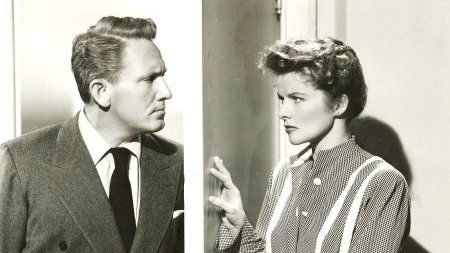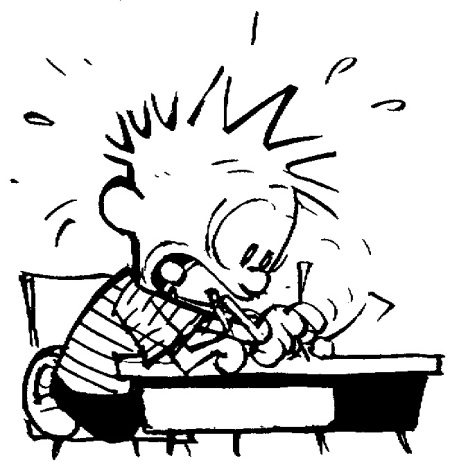Monday, December 29, 2014
SJWG Writer of the Year 2014
Just a quick note to honor friend, writer, and fellow SJWG member Marie Gilbert who was recently voted this year's Writer of the Year.
Marie's work can be found at Gilbert Curiosities, Biff Bam Pop!, Go Jane News, and here on this blog, among many other places online. Her first novel Roof Oasis can be found here. Rock on, Marie! Thank you for everything you do!
Sunday, December 21, 2014
The Death Story
In January of ’84, after a decent winter break between college semesters, I was excited and nervous about something new in my college schedule – theater. Not theater from a book but more like an intro to acting. I had always loved movies and plays, but I had never actually done anything towards joining a production. Signing up to not just talk about theater but to take part in script reading and performance, albeit limited to a classroom, was bold for me. The professor – Dr. Will Grant – was far bolder. Or, maybe he was just a bit nuts.
We sat there, some with notebooks and pens ready while others sipped coffee. Then he sat on his desk with a big smile and Jerry Lewis hair, a white dress shirt and black pants like halfway to a Blues Brother, and asked if anyone had seen any good movies during the break. Someone answered with Terms of Endearment. Dr. Grant’s face reddened as his smile grew, sort of a devlish Jack Black smile.
“Terms of Endearment!” he said, and I was thinking he must have enjoyed it as much as I had. “What a piece of trash!” Okay, that was intimidating. He must have been able to see faces dropping throughout the class as he continued. “Think about it. What happens at the beginning of every story? You introduce characters. You learn about them, get to know them, what they do, what they like and don’t like. Where they live, who they’re in love with, who they hate.” He picked an aisle and walked a bit, always making eye contact with anyone willing to look his way.
“Then the main character, our protagonist, gets involved in a conflict of some kind. Trouble happens. He has a problem he must deal with, something to overcome. But he has limitations or faults that are usually related to the problem he is facing. For example, in Rocky, he was a fighter, but not a great fighter with not much confidence. He was going into the ring with the heavyweight champion.” Grant paced further, arms more animated.
“A protagonist’s conflict is against one of three possibilities. Another person, one’s environment, or against one’s self. Rocky’s conflict was against his own confidence, his friends who did not help, and his opponent who was the champion of the world. While Rocky seems like a simple story, it actually has a rather complicated conflict.”
I was learning so much on my first day, first hour of class.
“The person or thing opposing the protagonist is called the antagonist. So we have a protagonist versus an antagonist. And the whole reason we watch a movie is to find out who wins. Does the protagonist overcome the conflict against the antagonist, or does he fail? Is he beaten down, unable to win, or does he rise above?”
I had kind of known that, but I had never given it much thought. I just watched movies and enjoyed them without naming the parts. When I drive, I don’t think about the how the hydraulics control the brakes. I don’t imagine the coordination of the spark plugs, cylinders, and fuel-to-oxygen ratio. I just step on the damn brakes to stop and gas to go. You can write a sentence with a predicate adjective without actually knowing what the hell a predicate adjective is. Either way, I was learning, and the teacher continued his monologue.
“So, in Terms of Endearment, we meet a mother and daughter who don’t get along well. And the mother meets a love interest who does crazy shit. And people get along well, not so well, then well again and not so well again. Would anyone like to tell me who either the protagonist or the antagonist is?” Hesitation, then a few hands.
“The mother?”
“The daughter?”
“The crazy guy?”
I wasn’t about to say a word, but I could see Dr. Grant was ready to say something. He was an acting teacher. He was building drama, letting tension bubble up, increasing the pressure as his face morphed into a satanic grin. He landed back on his desk again, standing with his butt leaning against it, his arms folded across his chest and resting on his protruding belly.
What Dr. Grant went on to explain was that stories like Terms of Endearment, Love Story, and Beaches, with 6 Oscars and one nomination total, are much beloved films in which nothing really happens. We meet people, get to know, perhaps like them, and watch them do incidental things that are mostly endearing but not at all vital. They go in and out of relationships while having professional and personal ups and downs. Eventually the story has nowhere to go, nothing else to do, so the only way to end it is for someone to die. It’s about as creative as paint-by-numbers.
There was no way I would have ever disagreed with Dr. Grant back then, but I do agree with him today. The only reason I mention this is because of the recent release of The Fault in Our Stars, another “death story.” This one is even worse because it involves teens instead of adults. When adults perish in a death story, we can deal with it more easily because we can at least say they probably lived a full enough life. But to have a death story involving teens or kids? That’s just wrong. It does no more than rip at our sympathies and slice our heart strings, though I must admit I have no idea what heart strings are.
I have maintained for years that the hardest part to writing a good story is coming up with a convincing ending. A teacher in a screenwriting class summarized a story plot like this:
You have a protagonist. You put him up in a tree. The conflict is he must get down. While he is trying to get down, the antagonist throws rocks at him. Some rocks are sub-conflicts and rising action. Other characters come along. Some help, but some throw rocks too. Eventually, he gets closer to the bottom, so you throw bigger rocks, and then he retreats a little. He tries branches on the other side of the tree, but you move with him and get more rocks. Eventually, usually, the protagonist will get down, sometimes not, but either way the story is over.
I like that analogy because I could see it. I can’t really see “protagonist” or “sub-conflict,” but I can see rocks and a tree. When I extend the analogy to story endings, I realize that the protagonist will get down with the help of a ladder or rope or something. That ladder is your ending, but it needs to be arrived at carefully. It can’t just appear out of nowhere because that’s like a death ending. I know the dying character probably started coughing at the end of the first act, but that’s just some foreshadowing because the director thinks the audience could be texting or opening another pack of Twizzlers.
A few coughs from a character are not enough for a death ending to make sense. Having someone die to end a story is like setting a timer halfway through and watching the countdown until someone is counted out. It is simply lazy writing. A good ending needs to be nurtured and worked into the story slowly. It shouldn’t be a 16-ton block that falls on someone or a train that crushes a car at a railroad crossing. It needs to be unexpected but not unexplainable. Inexplicable. Whatever. If someone is going to die to end a story, there needs to be something organic about it. It can't just happen for no reason other than to end the story.
In Gran Torino, with Clint Eastwood, it is telegraphed from very early in the film that his character is going to die. Oh - "spoiler." Anyway, we know he'll die, or at least it is strongly foreshadowed, but his death is at least for a reason other than to end the story. His death is productive and useful, it makes something happen, and it is the result of something that happened. It wasn't pulled out of a hat. Or a sombrero.
A good ending shouldn’t be a deus ex machina, in which unseen forces conveniently take control. It should rely on a writer to construct something, put some work into it, plant some seeds along the way, water them, and eventually the ending starts to naturally grow. It shouldn’t just fall out of the sky or pop out of the ground. Although, in the case of a death story, I guess it pops into the ground.
Tuesday, December 16, 2014
He Said, She Said
I recently received a rather unexpected comment on something I had written, and I think I did a good job of responding politely. Like most writers, I greatly look forward to comments, either positive or negative. Naturally, we like the positive nods because it means, usually, we did something well. I pause with usually because there are readers who regularly write “great job” no matter how great or poor your “job” might have been.
Some of us actually prefer negative comments because there is always the potential for someone to accurately point out something that’s inaccurate. No matter how carefully we revise, there are always spelling, punctuation, or other errors we will miss. Just today I was lucky enough to have a friend find that I had written “were” when it should have been “where,” or maybe it was the other way around. Either way, my thanks to Sverrir.
Another reason to enjoy negative comments is so we can learn something we previously had not known. For example, last week I read a short story in which the writer used “mom” and “dad” several times, but too often he capitalized them incorrectly. I left a comment explaining the rules for capitalizing titles such as mom, dad, grandmother, uncle, etc. I have not yet returned to his blog to see if my comment was appreciated. Probably not well, but that’s not what I’m here to write about.
A few weeks ago I wrote a flash fiction piece for which I found a critical remark from a reader who did not like my attributions. I only used “he said” and “she said” instead of things like “he exclaimed” or “she cried” etc. Perhaps you can tell, but this inspired another “Writing 2.0” blog post, of which you are now in the middle.
You might not know that dialogue is my strongest writing skill, and part of dialogue is attribution, of course. I go along with advice from Ernest Hemingway, whom I paraphrase:
If your dialogue is written well, you don’t need anything more than “he said” or “she said.”
Let’s think about that.
“What the hell is wrong with you?” she asked.
“What the hell is wrong with you?” she said.
Putting aside the fact that I hear this on a daily basis, let’s look at the difference between the two sentences. One used “asked” and one used “said.” Only 99% of you will tell me that “asked” is correct, to which I respond, “Why?” I know it’s a question, yeah, because of that curly thing. I do not need the attribution of “asked” to know it’s a question. Whether the spoken words are interrogative or declarative, she still “said” something. If you asked, you spoke. And if you spoke, you said. Nobody is going to read “What the hell is wrong with you?” and not know it was a question when it is NOT followed by “she asked.” And if you don’t know it’s a question, then you don’t know how to read.
Hopefully, you never suffered through any of the Twilight books. While reading the first two – because my kid asked (not said) me too – I had a list of some horrible attributions. Can’t find the list, so I’ll recreate them as best I can.
“I don’t really care,” she said staring out the window abstractedly.
This uses “said,” but it adds the stupid adverb “abstractedly.” It could be the writer really meant “distractedly,” but this is what was printed.
This next line was written as an answer to a question:
“No,” he disagreed.
Really? Are readers unaware that “no” signifies disagreement?
I think you get the idea. I’m going to put down a few lines of dialogue, each with two choices for attribution. You decide which works better, and feel free to explain your choices.
“Holy batshit!” he exclaimed / she said / (or nothing).
“Get away from my car!” she shouted / she said / (or nothing).
“Shh. They’ll hear us,” she whispered / he said / (or nothing).
“Please! No! Wait!” he cried / he said / (or nothing).
Most writers will go with the first choices of exclaimed, shouted, whispered, and cried because they are the easiest choices. Really, you can’t lose because nobody will complain. However, I will submit that the context is enough so that we only need said. I will go even further as to say my preference would be nothing.
Let me be clear about something that was lost in translation until I was reminded by List of X. I am not saying NEVER use words like shouted, cried, and whispered. I AM saying that if you spend time using a thesaurus to find unique attributions because you think it makes you a better writer - don't. It doesn't make you a better writer. Use those other words sparingly, but stick mainly with "said" or "asked."
Your job as a writer is not to teach me new vocabulary. Your job as a writer is to teach me a new story.
Of course we would need more narrative around the quotes, but I would wager that there would be enough context included that we wouldn’t need anything more than just the dialogue. In context, there likely would be no mistaking which character would be exclaiming, shouting, whispering, or crying. For example:
Luke watched in amazement as Tex rode the bull well beyond nine seconds. “Holy batshit!”
Considering that Tex is riding the bull, it is not very likely he would also yell “Holy batshit!” It is more likely that Luke would have said this as Tex is probably unable to speak.
Marie was walking through the parking lot when she saw two boys crouched next to one of her tires. “Get away from my car!”
Thanks to the set up, we know there’s only one possible person who could say this.
“I think the kids are awake,” David said to his wife.
“Shh! They’ll hear us.”
“Shh! They’ll hear us.”
It is safe to assume his wife had answered him, and it is safe to assume she whispered.
The gunman raised his pistol, taking aim at Joseph’s forehead. “Please! No! Wait!”
Anyone want to guess who would have said this line?
Another instance in which poorly written dialogue drives me up a wall is when to use names in direct address. For example:
“Diane, can you answer the phone?”
“Can you answer the phone?”
The obvious difference here is the use of a name in direct address, when you directly speak to a specific person. Most writers use this unnecessarily and incorrectly. More often than not, written dialogue involves only two people at a time. If that is the case, why use the other person’s name if there are only two people? If a married couple named Diane and Jack are talking to each other, they know only the two of them are present. They can’t possibly accidentally talk to someone else. If Jack only says, “Can you answer the phone?” there is no way Diane could ever say, “Oh, I didn’t realize you were talking to me.” So please believe that 9 times out of 10, you won’t need to use the name. But what about the other 1 out of 10?
Let’s put it in context.
Jack was heading for the bathroom when the phone rang. “Can you answer the phone?”
You want to guess who is making this statement? Jack or Diane? Should be easy. That’s 9 out of 10. What about that leftover 1? Let’s give that a shot.
“I don’t either.”
“I don’t either, Jack.”
These two lines seem silly on their own, so I’m going to add context. Then you tell me which one is the better choice.
After ten minutes of nothing but forks stabbing at chicken and vegetables, Jack broke the silence. “I don’t understand why you got fired.”
“I don’t either.”
“I don’t either, Jack.”
In the first one, without the name, we can assume that Diane is unhappy about being fired. As previously stated, we usually don’t use the other person’s name when there are only two people - unless we are angry and feel a need to direct anger towards that person. It brings emphasis and intent. It kind of throws something back at or sort of reduces the other person. That's what happens in the second sentence, the one with "Jack." Using "Jack" tells us that Diane is not only unhappy but she's also unhappy with Jack. Maybe Jack didn't do anything wrong, but maybe Diane is tired of being asked. Maybe Jack is blaming her for getting herself fired. Or maybe you don't know Jack.
Try it out with a friend, or your significant other. Say it to them, or let them say it to you. When you hear your name, you will feel something, and it won’t be a hug. Maybe more like a dart. Or, maybe you already know what I'm talking about because it already happens too often.
Good luck, Writer.
Monday, December 8, 2014
Show - Don't Tell
“Every good writer has been told - Show, don’t tell. And every bad writer needs to be told again.” – a guy named Eddie.
There are a million people looking for writing advice and another million ready to provide it. However, just because someone offers something doesn’t mean that the something is worth taking. Just ask the man in the trench coat. If the most common piece of writer’s advice is Show, don’t tell, then why do those three words need to be repeated so often? Either those offering or those receiving, or both, don’t really understand what it means.
Warning: if any of the following writing samples seem like something you may have written, then either this is purely a coincidence or you purely need to pay attention.
1. “I think you have the wrong house,” she said angrily.
2. “I think you have the wrong house,” she said shyly.
3. “I think you have the wrong house,” she said teasingly.
4. “I think you have the wrong house,” she said happily.
You might have a good grasp of what’s happening here, but you might not be impressed. Either way, these are all good/bad examples of telling instead of showing. It is the same line of dialogue each time, which is okay. What’s not okay is the context – which doesn’t really exist. The only difference is the one adverb at the end of each attribution.
What’s an attribution? The “he said” or “she said” that usually accompanies dialogue and identifies the speaker. The problem here is that each attribution is the same except for that one adverb. There’s nothing wrong with adverbs except in sentences like the four above because there is nothing interesting about just one adverb. That’s why good writers try to avoid overusing them. Notice I said “try.”
In each of those sentences, we are “told” how the woman feels: happy, angry, shy, teasy. Horny. Whatever. Just follow along. There are two problems. First, when reading the dialogue – “I think you have the wrong house” – we have no idea what’s happening until after the spoken words are over. It would be more interesting if we had some context before the words came out. You know - context clues. Here is the same line of dialogue, four times, but with a little something added.
1. With a tight jaw and sharp eyes, she growled, “I think you have the wrong house.”
2. She showed one eye where the door was open only a few inches, then she whispered, “I think you have the wrong house.”
3. She raised one eyebrow, hooked her thumbs in the waistband of her cut-off jeans, and shifted her barefoot stance from one hip to the other. “I think you have the wrong house.”
4. She removed his company cap, put it backwards on her own head, and shrugged. “I think you have the wrong house.”
Readers aren’t stupid. Most readers aren’t stupid. You’re not stupid. Right? You don’t want to complete a puzzle with sequentially numbered pieces. You don’t want a maze that has a map. And you don’t want to be told what is happening. You want to see it for yourself. You want to feel it, experience it, uncover it, and be there as it is revealed in front of your eyes.
You don’t want to be told that a woman was scared to death when a carjacker knocked her into the backseat and drove her car away. You want to see her white-knuckle grip on the door handle as she weighs opening the door and rolling out as he slows to 40 mph around a turn.
Let’s look back at the woman who answered the door. Not the angry one. The tease. If I want to tell you more about her, I might mention her having “ruby red lips” or “lips painted crimson.” Sound good? No – it doesn’t. It sucks. What good is it to tell you a color when I can show you a color? Names of colors are meaningless, except on crayons. Then they're fun. What matters are things that actually are those colors.
Her lips held a shine as if she had just kissed blood.
Now we’re getting somewhere. I want to know more about this woman. Instead of telling you she has red lips, I’m showing you not just a thing that is red but a thing that holds a lot of mystery and feeling. Blood. Yeah, she bad. Blood is bad. There’s never a good reason to see blood, unless you’re on a table making a donation to the Red Cross. This chick is bad. How bad? We don’t really know yet, but I would love to find out. If we’re lucky, maybe she will “show” us just how bad she is. Like that time I was in the parking lot of a bar in Philly and I – well – nevermind.
Focus. Focus. Well, let's think about it. If your slutty neighbor is fooling around with the cable guy, would you prefer she tell you or show you?
That's what I thought.
Tuesday, December 2, 2014
Poetry
po·et·ry (poh-i-tree) noun
writing that formulates a concentrated imaginative awareness of experience in language chosen and arranged to create a specific emotional response through meaning, sound, and rhythm.
writing that formulates a concentrated imaginative awareness of experience in language chosen and arranged to create a specific emotional response through meaning, sound, and rhythm.
- Merriam-Webster.com
___________________
po·et·ry (poh-i-tree) noun
saying as much as possible in as few words as possible, in a unique way
saying as much as possible in as few words as possible, in a unique way
- Me
__________________
“You can't write a good poem about sadness. But you can write a great poem about a homeless man sleeping on a park bench as it begins to snow on Christmas Eve.”
- Dr. Philip Cioffari
__________________
We can debate all day about what makes a good or bad poem, whether or not a poem should have rhyme or rhythm, if punctuation is needed after each line or at all, and if “pine” and “thin” are close enough to be considered as rhyming. All of that is important, but not for this post. For now, I don’t care about “what” a poem is as much as I care about “why" and "where.” Why do we write poems? Where do good poems come from?
A poem is not so much “writing” as much as it is “experiencing.” To explain all of this, I will go through the process of writing a poem that has not yet been written but a poem that has “asked” to be written. Let me explain by showing you the best poem I ever wrote, only about 30 years ago. Before I show you the poem, I need to explain why it was written.
I lived in my parents’ basement from about age 13 until 20. Occasionally, in basements, you see things. Bugs. I don’t know what the bug was, but there was one that tortured me for hours until I could not take it anymore.
On the basement walls were a few sports and music posters, a curtain covering a window, and a round mirror about a foot and a half in diameter. Occasionally, while either writing/sketching at my desk or blow drying my hair (it was the 70’s), I would see peripheral movement. I distinctly remember a night when I took a break, put down my pen, and tilted my head back to stretch my neck. When my head returned to a more level position, I saw the bug on the opposite side of the room near an Elvis Costello poster. It was grayish (the bug, not Elvis), looked about the size of a thumb, and was surrounded by nothing but legs. Centipede? Not sure, but it may as well have been called “Scott Tenorman” because I knew that it was going to die. (see: South Park)
I’m not a killer, not even for bugs. Instead of smashing them, I catch them and throw them outside. Sure, maybe they get eaten by birds, but at least I give them a chance. Except mosquitoes. That’s where I draw the line. This thing, however, was too big. I knew that before I went to sleep that night, it must be dead. I eventually got it, but then I needed to write about it.
Nobody would ever sit down and write a poem about trying to kill a bug unless they actually had to kill a bug. Most people kill bugs, throw them in the trash, and get back to business. And most people might tell their friends, “Hey, you should have seen what happened last week. There was this giant bug, and…” Sure, that’s fine. Nice story, but there is a more unique way to say it.
"Breaking Webs"
Just the thought of those countless
long legs and I panic,
lured to chase satanic shadows
into dark, dusty corners.
long legs and I panic,
lured to chase satanic shadows
into dark, dusty corners.
You rise from the woodwork
feel your way through the dark
hide behind my mirror.
All the while I want you
but despise you
coming nearer.
feel your way through the dark
hide behind my mirror.
All the while I want you
but despise you
coming nearer.
Many others I’ve slain, and you -
soon comes your time.
I wish that devil inside
knew the hell you drag me through.
soon comes your time.
I wish that devil inside
knew the hell you drag me through.
I wish you knew terror!
That at any time
I could move that mirror
then - your life would be mine!
And I wish I could tell you to run
because I don’t want it.
That at any time
I could move that mirror
then - your life would be mine!
And I wish I could tell you to run
because I don’t want it.
As I was writing about the bug and its legs, I noticed that it wasn’t just about killing a bug. It could also be about killing a woman, like a Jack the Ripper-type stalking a prostitute or something like that. But that’s not the important part, not now. The important part is that this poem could not be written without the experience.
_________________________
Now, let’s do this from the beginning but with a little extra poetry instruction. A few days ago I was looking through my basement window as the dog was whizzing in the backyard and I saw this tree.
It sparked a thought about trees in winter, and it was enough of an experience to make me think of a poem because – like I wrote earlier – people do not write poems. Poems write themselves through poets. Things happen everywhere, every day, 24/7. Some things go unnoticed. Some things are looked at for only a blink. But some things work their way into our thoughts in such a way that they need to be remembered, processed, and translated for others to experience too.
I looked at the pine tree holding all that snow, and I thought about other trees, unlike the pine, that lose their leaves in the fall. Oaks and maples, known as “deciduous,” drop their leaves as daily sunlight decreases. Conifers, like the pines, hold their needles all year, thus allowing them to hold large amounts of snow.
Obviously, the pine is different physically, but it made me think about the pine being different emotionally or psychologically. This brings in one of my favorite poetic devices: personification, in which you describe an inanimate object as if it has living qualities. The pine in the snow made me think of it as being mentally stronger and more willing to deal with winter while the oaks and maples were hibernating until spring.
Before writing the poem, I need to do some research and find some facts about ways in which the pines are different from oaks and maples. Obviously, it’s the leaves. That allows me to juxtapose the broad leaves versus the pine needles, bigger versus smaller, yet the smaller works harder during the winter.
So I had a choice: Just tell people that pine trees aren’t as strong or as tough as oaks and maples yet they seem to be ready all year, or make it more unique?
Winter's Man
Mother Nature offered herself to the Oak
.....His strong hands that hold riches of gold
.....Steady arms strong and bold
.....Inside his trunk a hundred rings
.....to Oak the Good Mother did sing
but Oak said, “I’ll be asleep until Spring”
.....His strong hands that hold riches of gold
.....Steady arms strong and bold
.....Inside his trunk a hundred rings
.....to Oak the Good Mother did sing
but Oak said, “I’ll be asleep until Spring”
Mother Nature met the Maple
.....Broad hands, sweet sugar in his veins
.....Enough muscle to fill bowling pins
.....the archer’s bow, the butcher’s block
.....to Maple the Good Mother let down her locks
but Maple said, “I’ve already set Autumn’s clock.”
.....Broad hands, sweet sugar in his veins
.....Enough muscle to fill bowling pins
.....the archer’s bow, the butcher’s block
.....to Maple the Good Mother let down her locks
but Maple said, “I’ve already set Autumn’s clock.”
Then Mother Nature purred at the Pine
.....No strong hands but needles short and thin
.....Not solid, but soft, willing limbs
.....Yet his green alive and the Fall he resist
.....to Pine she gave winter’s snowy kiss
and Pine said, “Sleep well, boys. I got this.”
.....No strong hands but needles short and thin
.....Not solid, but soft, willing limbs
.....Yet his green alive and the Fall he resist
.....to Pine she gave winter’s snowy kiss
and Pine said, “Sleep well, boys. I got this.”
________________________________________________
Subscribe to:
Posts (Atom)

















